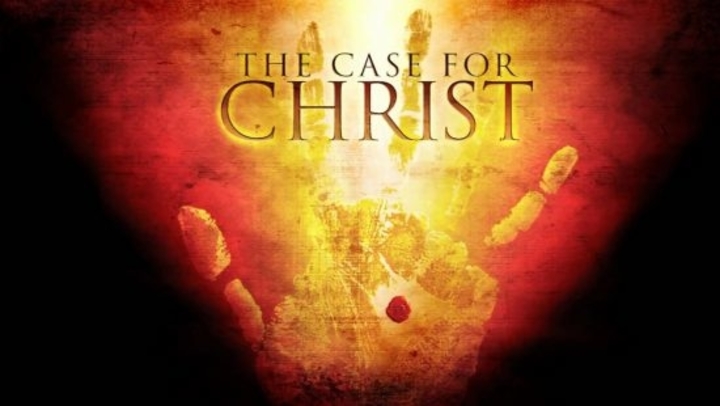Lee Strobel, best-selling author and professor of Christian thought at Houston Baptist University, has anything but a usual conversion story.
A Harvard-educated, hard-nosed atheist working as a journalist at the Chicago Tribune, Strobel was infuriated when his wife converted to Christianity - and determined to disprove her faith. However, after conducting an in-depth investigation into Christianity, including a number of interviews with Biblical scholars and theologians, Strobel found himself converting to the religion he once despised.
This spring, Strobel's journey will come to life on the big-screen. "The Case for Christ" film, based on his book of the same name, is a powerful story that will inspire everyone who sees it, from the believer who accepts the authority of the gospel to the skeptic searching for answers.
The following is an edited transcript of The Gospel Herald's interview with Strobel, in which he discusses his hopes for the upcoming film and how Christians and churches can use it as an outreach tool. You can read part one of the interview here.
GH: Who is the "typical" audience member you envision as most interested in "The Case for Christ"?
LS: I think a lot of Christians will be interested because many of them have read "The Case for Christ," so they'll want to see the story come to life. I think Christian will walk away with their faith enriched and will be motivated to talk to others about Jesus. They'll know more about why they believe what they believe. But, I think as they walk out of the theater, four or five names will come into their mind, and it'll be friends who don't know Jesus; people who are spiritually curious and confused, or people who've walked away from the church. Those names will come into their heads, and they'll think, "I need to bring them so they can see this," because it's a story they'll relate to on another level. It's a story of someone who was a skeptic and pursued the evidence to find the truth of the faith.
I think we're going to reach not only the Christian audience but those spiritually curious people who are invited by their Christian friends. The Gospel is crystal clear in the movie. So, I think people will emerge with an understanding of what Christianity is about, and they'll be entertained by the movie, but I think they'll also be encouraged to investigate the evidence for themselves.

GH: To what extent were you involved in the making of this movie, and in your opinion, is it true to actual events?
LS: I sat down with Brian Bird, the screenwriter, who is a friend of mine. I think we spent about a week together, with Leslie, my wife, and we just talked about our story and helped him storyboard it. Whenever you try to take a two-year spiritual investigation and put it into a 90-minute movie, you'll have to have some compromises. So, there's some time-shifting and composites that are done. But, overall, it's very true to life. There are some scenes that are so realistic that when Leslie and I were watching the filming being done, we were crying because it brought back the emotions of the time, when our marriage was in disarray because I was a skeptic and she had become a Christian, and it was tearing apart our marriage. A lot of it is very reflective of what took place.
GH: How do you see churches, groups or individuals using this movie to start conversations?
LS: I really think this is a tremendous outreach opportunity for churches, a chance for churches to buy out a movie theater and invite their friends. When you buy out a theater, you generally get the right then to have a microphone at the end and maybe have the pastor do a Q&A to talk about the movie. I think the most important moment of this film is going to take place after the movie is over, when the Christian invites their spiritually-curious friend to go out to the coffee shop and sit down and have a conversation about what they just saw. We believe God is going to plant a seed through this film, and there will be a great opportunity for a fruitful conversation after the movie. We want to help people do that. We've also provided kits for churches and small group curriculum, one deeper and one beginning level, to deal with the questions raised by the film so if the small group wanted to discuss it and invite their friends and neighbors in for that, it'll make it easy to do.
GH: How can Christians pray ahead of the release of this film?
LS: I hope they'll pray for the people who will be attending the movie, the Christians who will be coming to the movie, that they'll take a risk and invite a friend with them and to experience the movie together and use it as fodder for a spiritual conversation. I hope they pray God would use the film to draw people to the truth of who He is. I hope they'll be praying for churches, which I hope will be asking, "How can we use this film as an outreach opportunity to reach the community for Christ?" It's a creative way to bring people to a place to experience a spiritual journey, and that's a rare opportunity. Film, I think, is an intriguing medium to reach people. We're encouraged by it, we really appreciate people's prayers and trust that God will use the film in ways that we don't even anticipate yet.







